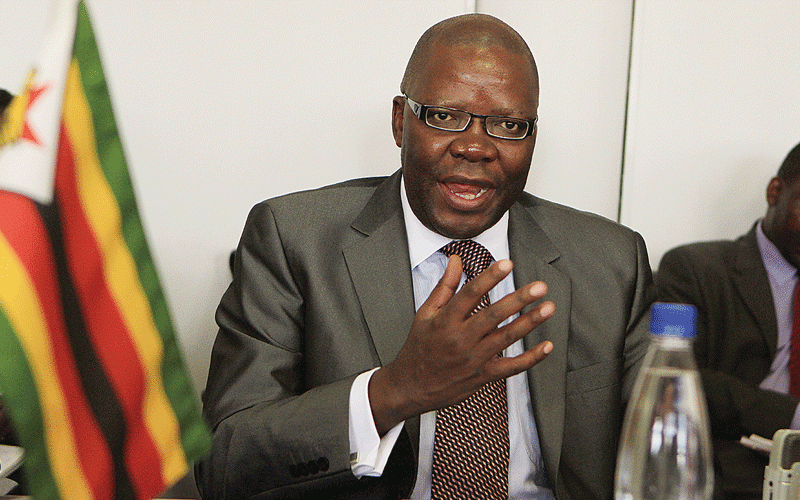
By VENERANDA LANGA
FINANCE minister Mthuli Ncube on Tuesday denied allegations of inconsistencies in the 2020 national budget saying the variances popped up because government had changed its accounting standards.
Previously, Harare East Member of Parliament (MP) Tendai Biti and Dzivarasekwa MP Edwin Mushoriwa raised several inconsistencies in the 2020 budget. These concerns surrounded the total 2020 budget figure recorded as $58,6 billion, while the blue book had a different figure of $63,6 billion.
“Our revenue is $58,6 billion against an expenditure of $63,6 billion and that deficit I can assure you will be met. I think that also in reading the blue book, some members were saying ‘oh minister it is inconsistent’ and all of that. The numbers, colleagues, let me remind you that when you present the budget, the blue book is really proposals for you to challenge, contribute and alter, after all it is your budget,” Ncube said.
“So, that process is going to happen when we debate the Appropriation Bill. If you feel there are numbers you do not like or do not agree with because they are low or high, you will have that opportunity to do that. It is just a proposal.”
Ncube attributed the alleged “mistakes” in the budget statement and blue book to government adopting the new Government Financial Statistics Standards (GFSS) of 2014 and abandoning the GFSS of 1986, which they had been using.
“That is what the whole world is doing because this standard has been created by the IMF (International Monetary Fund) and all countries in the world, without exception, are being encouraged to move over to this new standard so that accounts across the globe are comparable,” Ncube said.
“That is one of the things we have done in the blue book and this is new. We can do further one on one explanations later or train Parliament. We are happy to do that.”
- Chamisa under fire over US$120K donation
- Mavhunga puts DeMbare into Chibuku quarterfinals
- Pension funds bet on Cabora Bassa oilfields
- Councils defy govt fire tender directive
Keep Reading
He further indicated that the second reason why the numbers were not tallying was due to it being technical.
“For example, we see in the blue book, there is an item that pertains to the issuance of Treasury Bills. Previously, this item would have been part of the expenses of the budget, but under the new GFSS 2014, it is below the line so you see it shift to below the line and, therefore, you remove it from the main budget considerations,” Ncube said.
He assured legislators that for 2019 they would meet their deficit target of 4% of the gross domestic product and before reducing it further to 1,5% next year.
Ncube added that in this year’s blue book they added a table that pertains to what he called the “common functions of government”.
“If you look at the current ministries, they are organised according to what we call the administrative classification. So you have the Ministry of Finance and Economic Development, Ministry of Industry and Ministry of Mines under the functions approach. You would amalgamate those ministries because what we want to do is, we want to create common standards across the globe,” he said
“This is again yet another standard that we are conforming to in this budget which will allow Zimbabwe to be compared to the USA, UK, Swaziland, Rwanda, Kenya, Bangladesh and Singapore. So it is called the functions approach and I am sure honourable members will enjoy reading this.”
He said this will help government participate competitively in the “Open Budget Survey”.
“Obviously, it is very important for us to be benchmarked globally and also our budget process should be well reported under what we call the country policy and institutional assessment programme. This is about global comparability. I think I should explain this issue, the last issue in terms of presentation of the blue book, which again is new,” he added.
Ncube said they had moved decisively to programme-based budgeting, which speaks to results with every ministry having a programme, a line and a budget.











